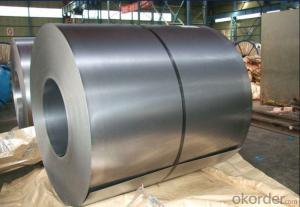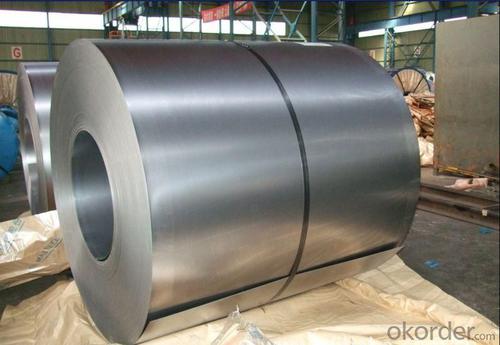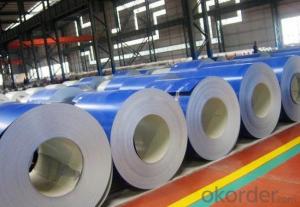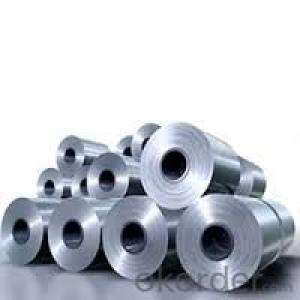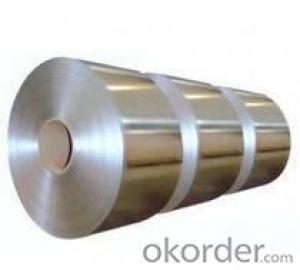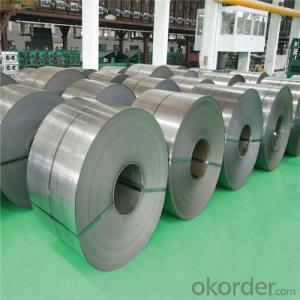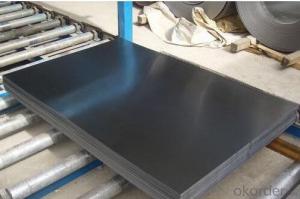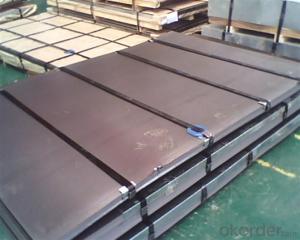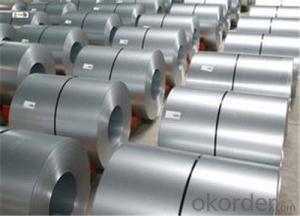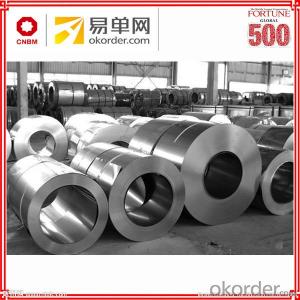Cold Rolled Steel Coil Used for Industry with Our Kind and Best Price
- Loading Port:
- Tianjin
- Payment Terms:
- TT OR LC
- Min Order Qty:
- 25 m.t.
- Supply Capability:
- 9000 m.t./month
OKorder Service Pledge
OKorder Financial Service
You Might Also Like
Pure Cold Rolled Steel Coil Used for Industry
1.Structure of Cold Rolled Steel Coil Description
Cold rolling means that hot rolled steel coil is rolled below recrystallization temperature after pickling, and its finished product is full hard coil. The thin gauge cold rolled steel sheet and strip steel have advantages of low surface roughness, high dimension accuracy and good mechanical properties etc, and which have been widely used in auto manufacturing, home appliance, architecture, aviation, precision instrument, hardware and enameling industry etc.
2.Main Features of the Cold Rolled Steel Coil
•High Purity
•Easy control and operation
•High strength
•Fast melting
•Competitive price
•Best Service
3. Cold Rolled Steel Coil Images
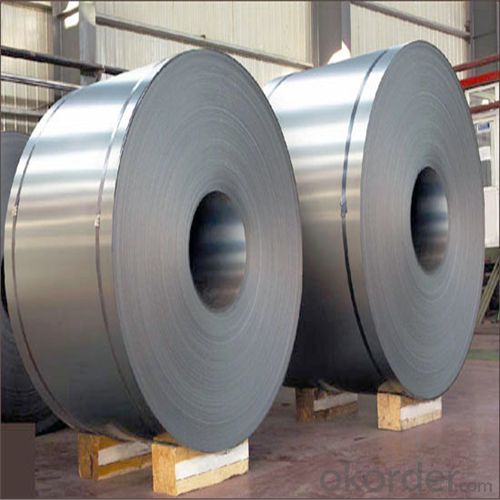
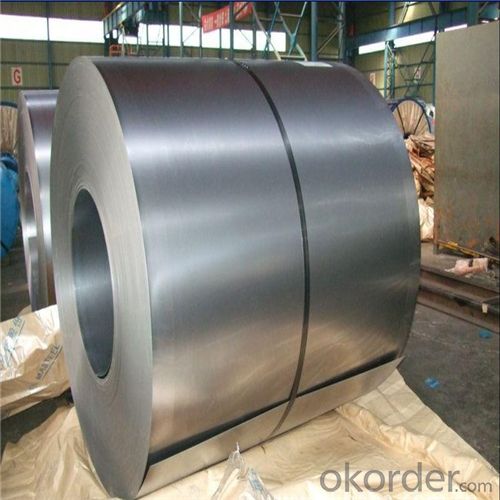
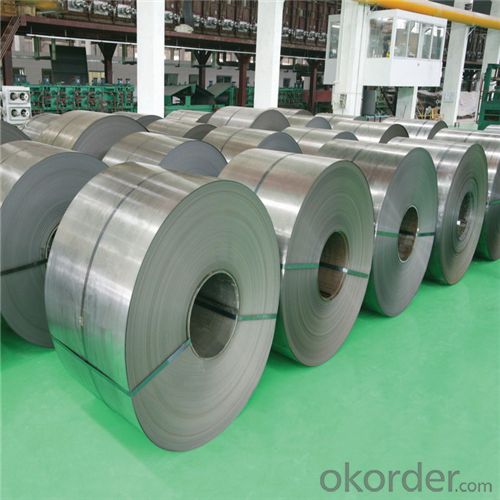
4. Cold Rolled Steel Coil Specification
COLD ROLLED STEEL COIL | |
Thicknenss | 0.10mm-4.00mm |
Width | 600mm-2000mm |
Sheets length | 1200-6000mm |
Coil inner diameter | 508-610mm |
Surface treatement | matt finish/bright finish,oiling/dry, bright anneal/black anneal |
Coil weight | 3-5t |
5.FAQ of Cold Rolled Steel Coil
We have organized several common questions for our clients,may help you sincerely:
①How about your company?
A world class manufacturer & supplier of castings forging in carbon steel and alloy steel,is one of the large-scale professional investment casting production bases in China,consisting of both casting foundry forging and machining factory. Annually more than 8000 tons Precision casting and forging parts are exported to markets in Europe,America and Japan. OEM casting and forging service available according to customer’s requirements.
②How to guarantee the quality of the products?
We resolutely put an end to unqualified products flowing into the market. At the same time, we will provide necessary follow-up service assurance.
③How long can we receive the product after purchase?
In the purchase of product within three working days, We will arrange the factory delivery as soon as possible. The pecific time of receiving is related to the state and position of customers.Commonly 7 to 10 working days can be served.
We can supply customers' with different specifications of the highest quality and lowest price.
Sincerely welcome to contact us for the future details if any item interest you ,and we will make every effort to assure that your requirements will be satisfied ,and we hope to establish long-term business relations with you on the basis of the equality and mutual benefit.
we are waiting for your email.
- Q: Are steel coils resistant to rust and corrosion?
- Yes, steel coils are resistant to rust and corrosion. Steel coils are typically made from carbon steel or stainless steel, both of which have excellent corrosion resistance properties. Carbon steel coils are often coated with a protective layer, such as zinc or a polymer coating, to enhance their resistance to rust and corrosion. Stainless steel coils, on the other hand, are inherently corrosion-resistant due to the presence of chromium, which forms a protective oxide layer on the surface of the steel, preventing rust and corrosion. However, it is important to note that the level of resistance to rust and corrosion may also depend on the specific grade and quality of the steel used in the coils, as well as the environmental conditions they are exposed to.
- Q: What is the role of steel coils in the manufacturing of pipes and tubes?
- Steel coils play a crucial role in the manufacturing of pipes and tubes as they serve as the primary raw material. These coils are unwound and then formed into the desired shape through various processes such as rolling, bending, and welding. The strength and durability of steel make it an ideal material for pipes and tubes, ensuring their ability to withstand high pressure, corrosion, and other demanding conditions.
- Q: How are steel coils inspected for damage during transportation?
- Steel coils are typically inspected for damage during transportation through visual inspections, where trained personnel carefully examine the coils for any visible signs of dents, scratches, or other forms of physical damage. Additionally, specialized equipment such as ultrasonic testing or magnetic particle inspection may be used to identify any hidden or internal defects in the coils. These inspection methods ensure that any potential damage is detected early on, allowing for prompt repairs or necessary precautions to minimize any further harm.
- Q: How are steel coils used in the production of agricultural irrigation systems?
- Steel coils are used in the production of agricultural irrigation systems to create the pipes and tubing that transport water to crops. These coils are formed into various designs to meet specific irrigation needs, ensuring efficient and reliable water distribution for optimal crop growth.
- Q: Are steel coils used in electrical equipment manufacturing?
- Yes, steel coils are commonly used in electrical equipment manufacturing. They are often used in the construction of transformers, motors, generators, and other electrical devices. The steel coils provide structural support, magnetic properties, and efficient conduction of electricity, making them an essential component in electrical equipment manufacturing.
- Q: How are steel coils processed for edge conditioning or slitting?
- Steel coils are processed for edge conditioning or slitting through a series of mechanical operations. The process involves unwinding the steel coil, leveling it to remove any deformities, and then passing it through a slitting machine to cut it into narrower strips. For edge conditioning, the strips are further processed to remove burrs and create smooth, precise edges. Overall, these processes ensure that steel coils are transformed into accurately sized and finished products suitable for various industrial applications.
- Q: How are steel coils used in the production of HVAC ducts?
- Steel coils are used in the production of HVAC ducts as they are rolled into a specific shape and size to form the main body of the duct. The coils are then cut and welded together to create a seamless and durable structure that can withstand the high temperatures and pressures associated with HVAC systems.
- Q: What is the standard thickness of steel coils?
- The specific application and industry requirements dictate the standard thickness of steel coils, which can vary. Generally, steel coils are obtainable in thicknesses ranging from 0.5mm to 10mm. Various factors, including intended use, structural requirements, and manufacturing processes, influence the desired thickness of a steel coil. Heavier applications that necessitate increased strength and durability typically employ thicker coils. Conversely, thinner coils are suitable for lighter applications where flexibility and weight reduction are crucial. To determine the appropriate thickness for steel coils in a particular application, it is essential to consult industry standards and specific project requirements.
- Q: I personally don't believe the story of 8 guys who flew small planes can navigate passenger jets into buildings hundreds of miles away with that precision. It just doesn't make sense.I am wondering what the story surrounding the molten steel was, how could molten steel have been produced when fuel from the planes wasn't hot enough (it melts at 2850 degrees)?
- that's just it: there wasn't very much molten steel for the very reason you point out. Jet fuel burns at 800° to 1500°F. This is not hot enough to melt structural steel. However, engineers say that for the World Trade Center towers to collapse, their steel frames didn't need to melt, they just had to lose some of their structural strength. Steel will lose about half its strength at 1,200 degrees F. The steel will also become distorted when heat is not a uniform temperature. after the collapse, a LOT of folks took a look at the remains. the result was the conclusion that the fire caused the central core of the building to weaken. When the floors collapsed one on top of the other, the weight was too much for the weaked core to bear, causing the result we are all familiar with. hope this helps
- Q: I know copper pots are supposed to be really good for cooking with, and I have been looking around online. One thing I don't want to do, however, is send them in to be re-lined with tin. So I was wondering if stainless steel lined copper pots work as well as the traditional tin lined ones, or if those make the copper just for looks.
- Stainless steel is durable and does not disolve and make things taste funny. Stainless steel is not a good conductor of heat, so it has hot and cold spots. Copper is very good conductor. They noe bond copper to stainless steel to get the best features of each. Some pots just have a very thin copper plating to fool you. A good pot will be heavier, It is really hard to tell from looking.if it is plating or a bonded layer of copper. the thicker the better
Send your message to us
Cold Rolled Steel Coil Used for Industry with Our Kind and Best Price
- Loading Port:
- Tianjin
- Payment Terms:
- TT OR LC
- Min Order Qty:
- 25 m.t.
- Supply Capability:
- 9000 m.t./month
OKorder Service Pledge
OKorder Financial Service
Similar products
Hot products
Hot Searches
Related keywords
